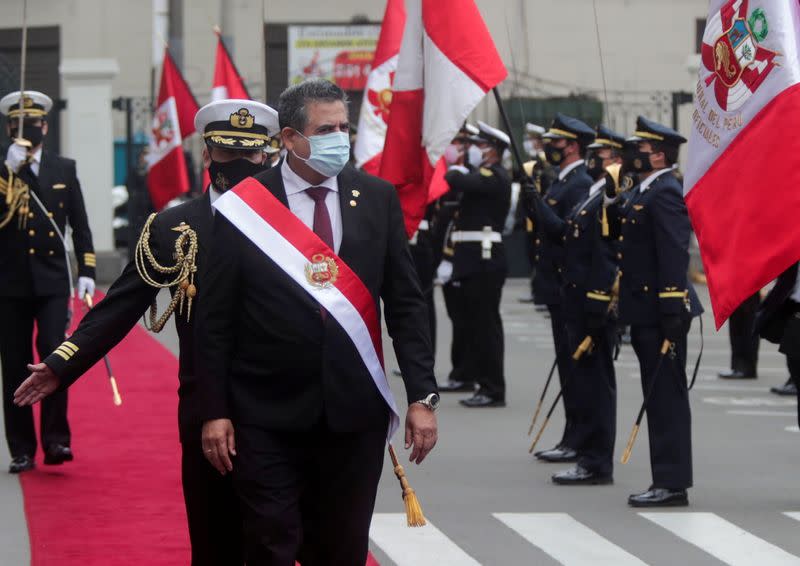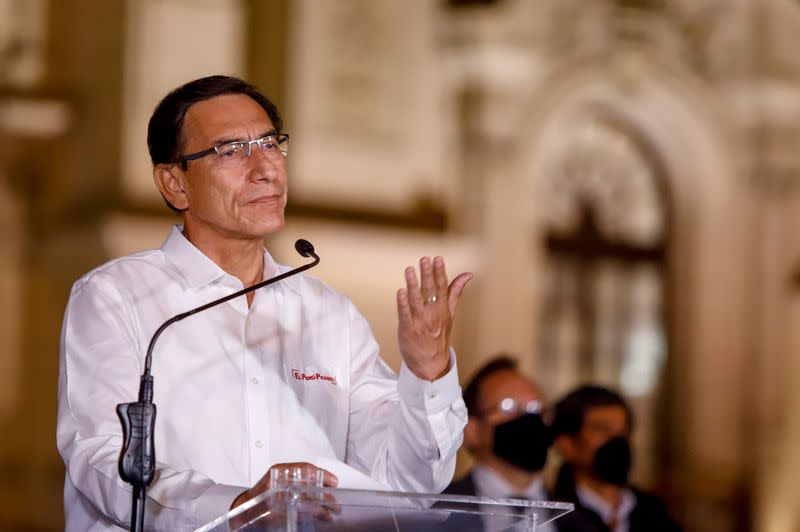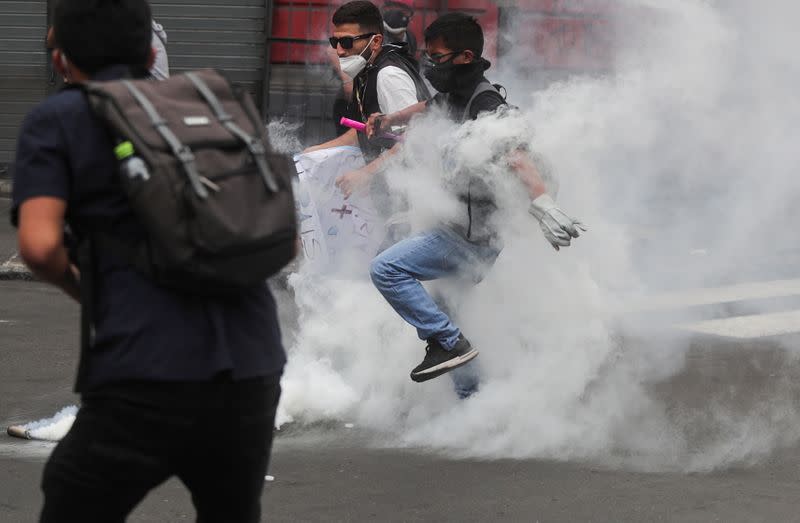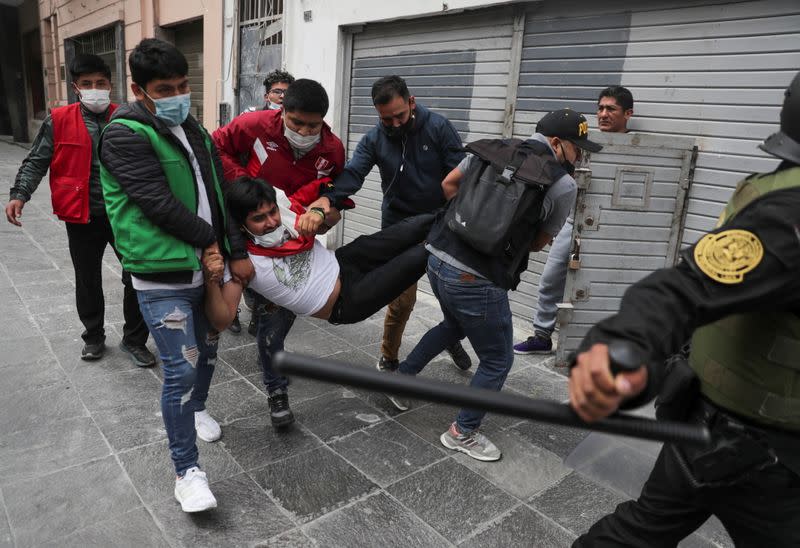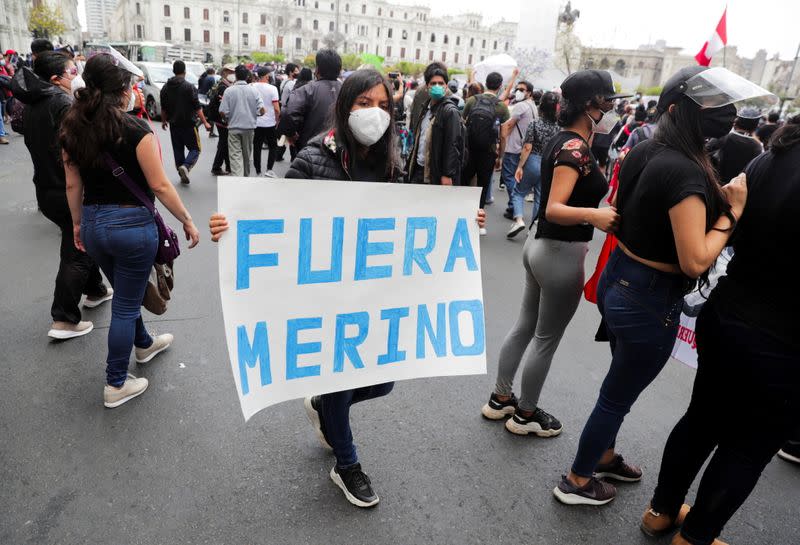Head of Peru's Congress assumes presidency, vows to respect election timetable
By Marco Aquino
LIMA (Reuters) - The head of Peru's Congress, Manuel Merino, was sworn in as the Andean nation's president on Tuesday, and vowed that elections set for April would stand after lawmakers removed Martin Vizcarra on corruption charges.
Merino, a businessman and member of the center-right Popular Action party, will serve as interim president until July, following the already-scheduled April 11 elections.
In a speech after the swearing-in ceremony, Merino, 59, sought to temper widespread concerns of pending political chaos in the world's No. 2 copper producer, promising an orderly transition and elections.
"There is nothing to celebrate here, this is a difficult moment for the country," Merino told Peruvians. "Our first commitment before the country is to confirm our democratic convictions, and our respect for the election timetable."
Merino's ascension to the presidency came after Peru's opposition-led Congress voted overwhelmingly to oust the centrist Vizcarra late on Monday after an impeachment trial over allegations of bribery, the second such trial he has faced in two months.
Vizcarra's abrupt removal means he joins a long list of Peruvian politicians ensnared in allegations of corruption, piling a political crisis atop the economic recession induced by the coronavirus pandemic.
It has also raised fears about potential knock-on effects for an economy already blighted by the coronavirus lockdown, and a drift toward populism.
Peru's sol currency plummeted to an 18-year low in early trading on Tuesday, and dollar-denominated government bonds also tumbled as markets took in the shock news.
Congress has twice approved the partial withdrawal of private pension funds amid the pandemic under Merino's leadership, unnerving some analysts and politicians.
Jaime Reusche, vice president with Moody’s Sovereign Risk Group, said even if the transition was smooth "destabilizing political incidents" could ultimately weaken Peru's institutions.
The anticipated backing by Merino's cabinet picks for fresh congressional initiatives like the pension fund withdrawals "could weigh on Peru’s creditworthiness,” he added.
Vizcarra, who presented himself as an anti-corruption crusader, continued to question Congress' decision to oust him on Tuesday, telling reporters Merino's government lacked legitimacy.
Several protests involving hundreds of people continued in cities throughout the country in support of Vizcarra. In downtown Lima, the capital, police fired tear gas at protesters who waved banners and signs and demanded Vizcarra's return.
In his speech, Merino told Peruvians he would focus on taming the coronavirus outbreak in the coming months, as well as righting the country's ailing economy.
(Reporting by Marco Aquino; writing by Dave Sherwood; Editing by Chizu Nomiyama and Tom Brown)
